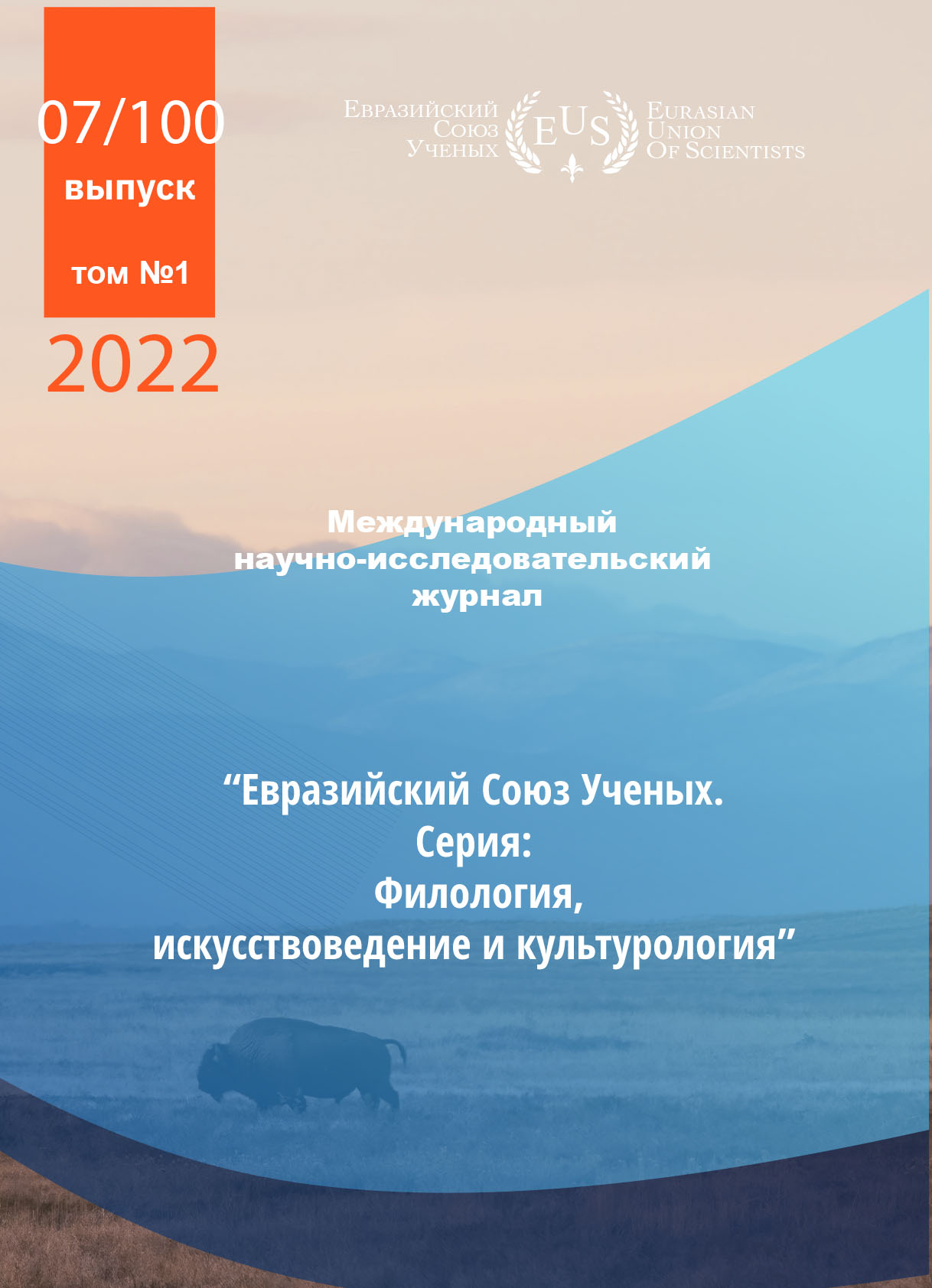CHINESE COMPOSER QING ZHU AND HIS ROMANCE "I LIVE AT THE SOURCES OF THE YANGZE RIVER"
Keywords:
He was a truly versatile personality, and the circle his professional interests are very wide
Abstract
Chinese musicologist and composer Qing Zhu (1893–1959) occupies an important place in history Chinese music in the first half of the 20th century. He was a truly versatile personality, and the circle His professional interests are very wide. He was born in Guangzhou province, where he studied at military school. In 1912, Qing Zhu went to Germany in order to continue military training case. After graduating from the University of Berlin, he defended his doctoral dissertation on Chinese theories of state and lawReferences
1. Van Czjun'. Jesteticheskie harakteristiki osnovnyh hudozhestvennyh pesen Cin // Muzykal'noe tvorchestvo, 2014, № (10). S. 125–127.
2. Vu Ljan'fan. Obshhee vyrazhenie pojeticheskogo smysla i smysla pesni Uhan': Uhan'skaja muzykal'naja konservatorija, 2010.
3. Chzhu Chanli. Osobennosti fortepiannogo akkompanementa dlja hudozhestvennyh pesen drevnih pojem Chzhu Cin // Simfonija: zhurnal Sian'skoj konservatorii muzyki, 2014, № 33(4). S. 120–125.
4. Chjen' Sifjen. Analiz muzykal'nyh harakteristik hudozhestvennoj pesni «Ja zhivu u istokov reki Janczy» Chzhu Cin // Severnaja muzyka. 2020, №09 (17). S. 85–86.
5. Deutsch-chinesische Beziehungen 1911—1927: Vom Kolonialismus zur «Gleichberechtigung». Akademie Verlag, 2006. 526 S. (nem.)
6. Liu Ching-chih. A Critical History of New Music in China. Chinese University Press, 2010. P. 179—182
2. Vu Ljan'fan. Obshhee vyrazhenie pojeticheskogo smysla i smysla pesni Uhan': Uhan'skaja muzykal'naja konservatorija, 2010.
3. Chzhu Chanli. Osobennosti fortepiannogo akkompanementa dlja hudozhestvennyh pesen drevnih pojem Chzhu Cin // Simfonija: zhurnal Sian'skoj konservatorii muzyki, 2014, № 33(4). S. 120–125.
4. Chjen' Sifjen. Analiz muzykal'nyh harakteristik hudozhestvennoj pesni «Ja zhivu u istokov reki Janczy» Chzhu Cin // Severnaja muzyka. 2020, №09 (17). S. 85–86.
5. Deutsch-chinesische Beziehungen 1911—1927: Vom Kolonialismus zur «Gleichberechtigung». Akademie Verlag, 2006. 526 S. (nem.)
6. Liu Ching-chih. A Critical History of New Music in China. Chinese University Press, 2010. P. 179—182
Published
2022-12-07
How to Cite
Zhou, Liang. 2022. “CHINESE COMPOSER QING ZHU AND HIS ROMANCE "I LIVE AT THE SOURCES OF THE YANGZE RIVER"”. EurasianUnionScientists, December, 03-08. https://phil-art.euroasia-science.ru/index.php/Euroasia/article/view/752.
Issue
Section
Article
CC BY-ND
A work licensed in this way allows the following:
1. The freedom to use and perform the work: The licensee must be allowed to make any use, private or public, of the work.
2. The freedom to study the work and apply the information: The licensee must be allowed to examine the work and to use the knowledge gained from the work in any way. The license may not, for example, restrict "reverse engineering."
2. The freedom to redistribute copies: Copies may be sold, swapped or given away for free, in the same form as the original.







